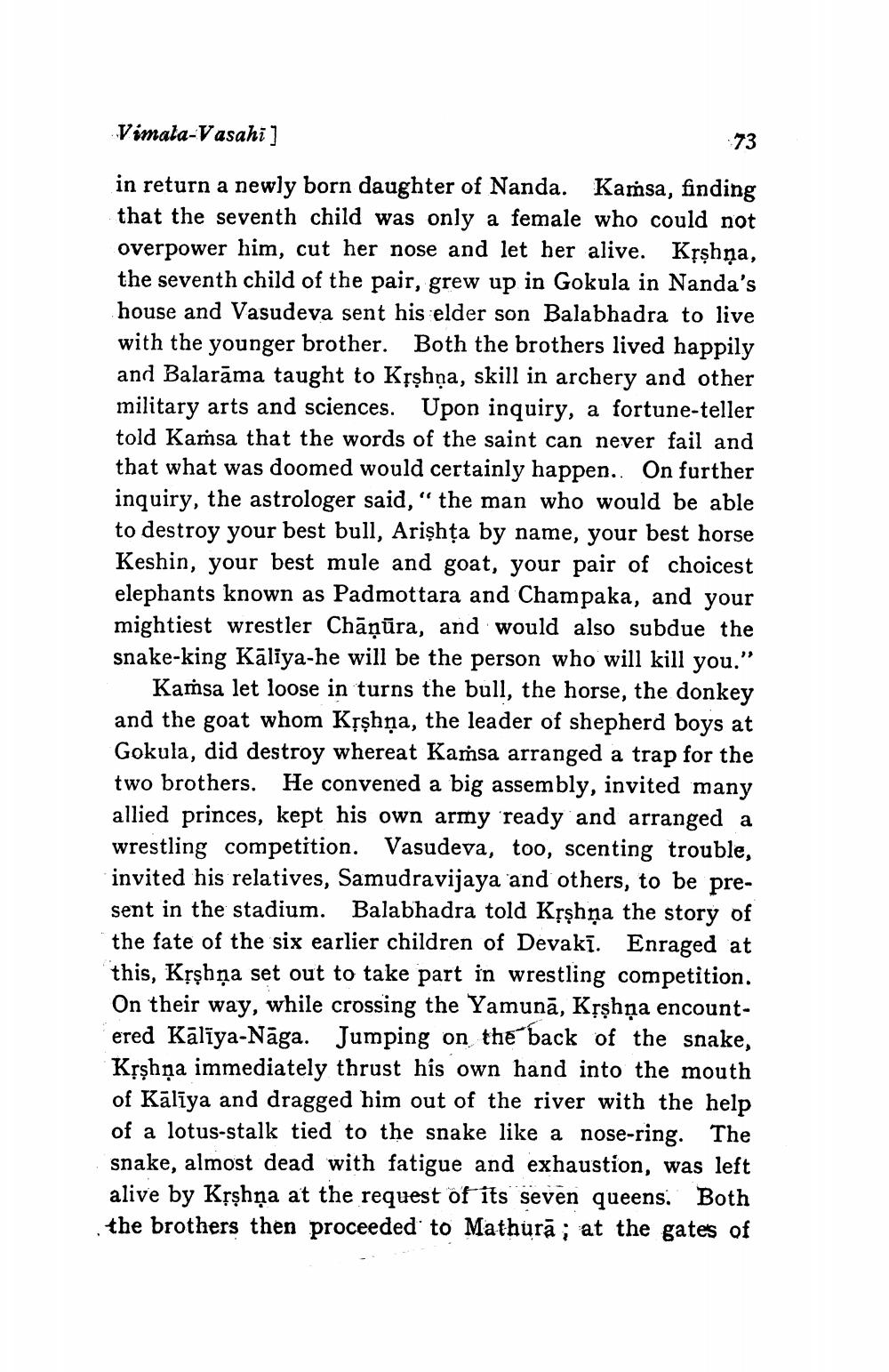________________
Vimala-Vasahi]
in return a newly born daughter of Nanda. Kamsa, finding that the seventh child was only a female who could not overpower him, cut her nose and let her alive. Kṛṣṇa, the seventh child of the pair, grew up in Gokula in Nanda's house and Vasudeva sent his elder son Balabhadra to live with the younger brother. Both the brothers lived happily and Balarama taught to Krshna, skill in archery and other military arts and sciences. Upon inquiry, a fortune-teller told Kamsa that the words of the saint can never fail and that what was doomed would certainly happen.. On further inquiry, the astrologer said," the man who would be able to destroy your best bull, Arişhța by name, your best horse Keshin, your best mule and goat, your pair of choicest elephants known as Padmottara and Champaka, and your mightiest wrestler Chaṇūra, and would also subdue the snake-king Kaliya-he will be the person who will kill you."
Kamsa let loose in turns the bull, the horse, the donkey and the goat whom Krshna, the leader of shepherd boys at Gokula, did destroy whereat Kamsa arranged a trap for the two brothers. He convened a big assembly, invited many allied princes, kept his own army ready and arranged a wrestling competition. Vasudeva, too, scenting trouble, invited his relatives, Samudravijaya and others, to be present in the stadium. Balabhadra told Krshna the story of the fate of the six earlier children of Devaki. Enraged at this, Krshna set out to take part in wrestling competition. On their way, while crossing the Yamuna, Krshna encountered Kālīya-Nāga. Jumping on the back of the snake, Krshna immediately thrust his own hand into the mouth of Kālīya and dragged him out of the river with the help of a lotus-stalk tied to the snake like a nose-ring. The snake, almost dead with fatigue and exhaustion, was left alive by Krshna at the request of its seven queens. Both the brothers then proceeded to Mathura; at the gates of
73




